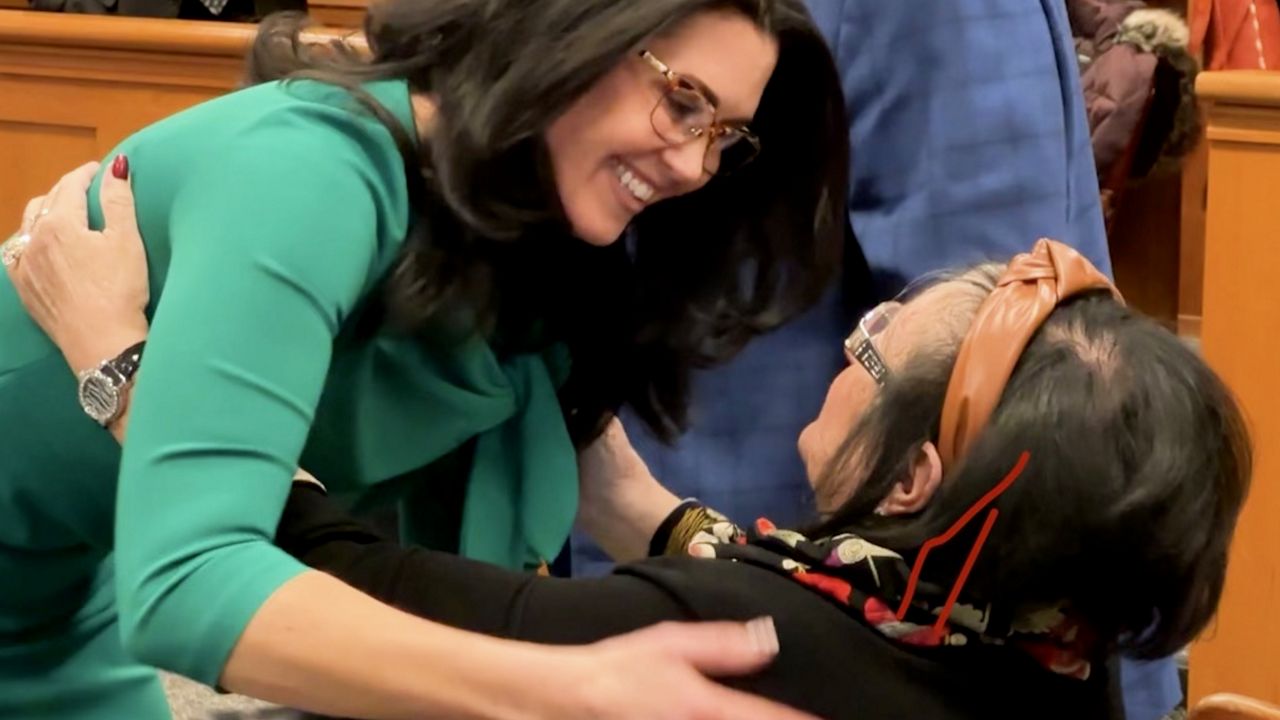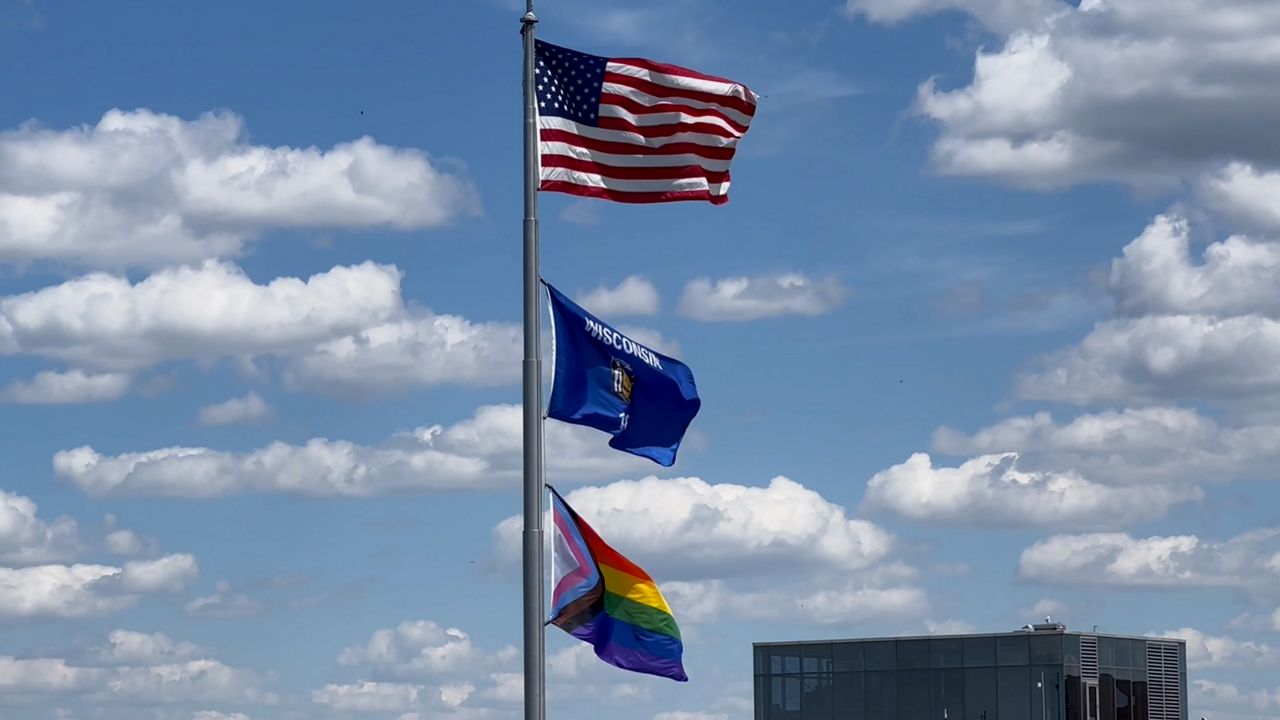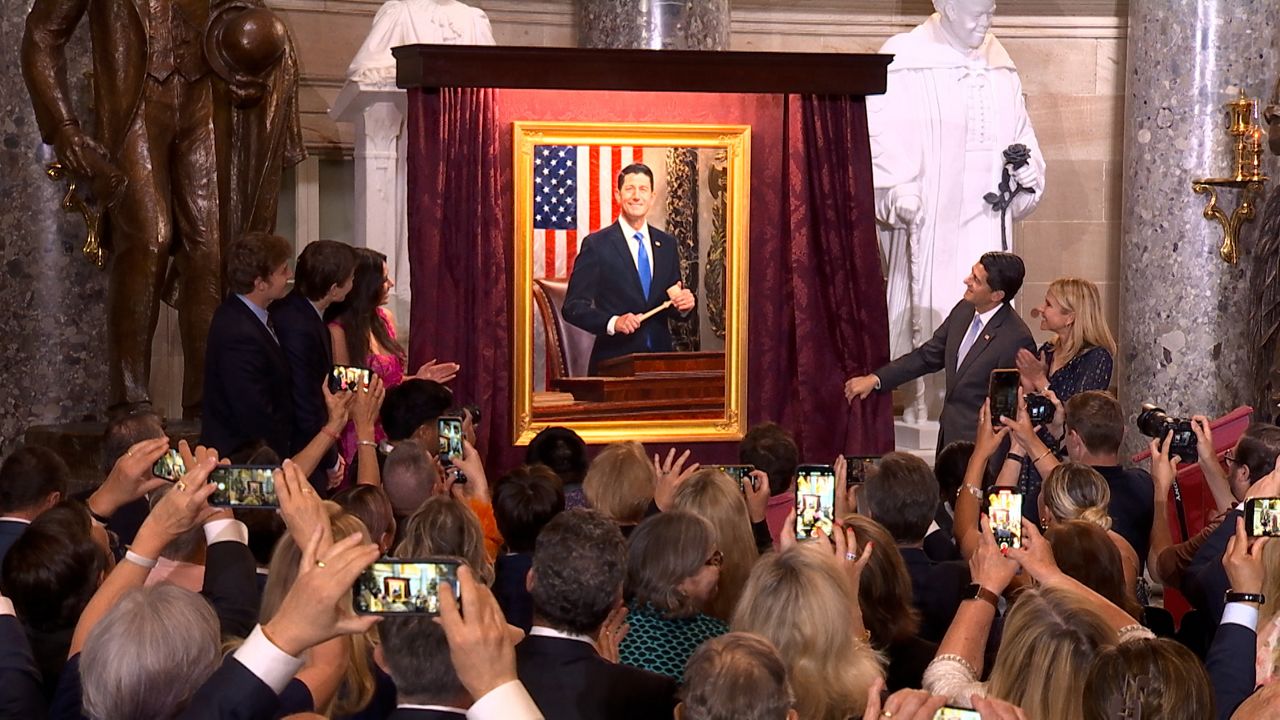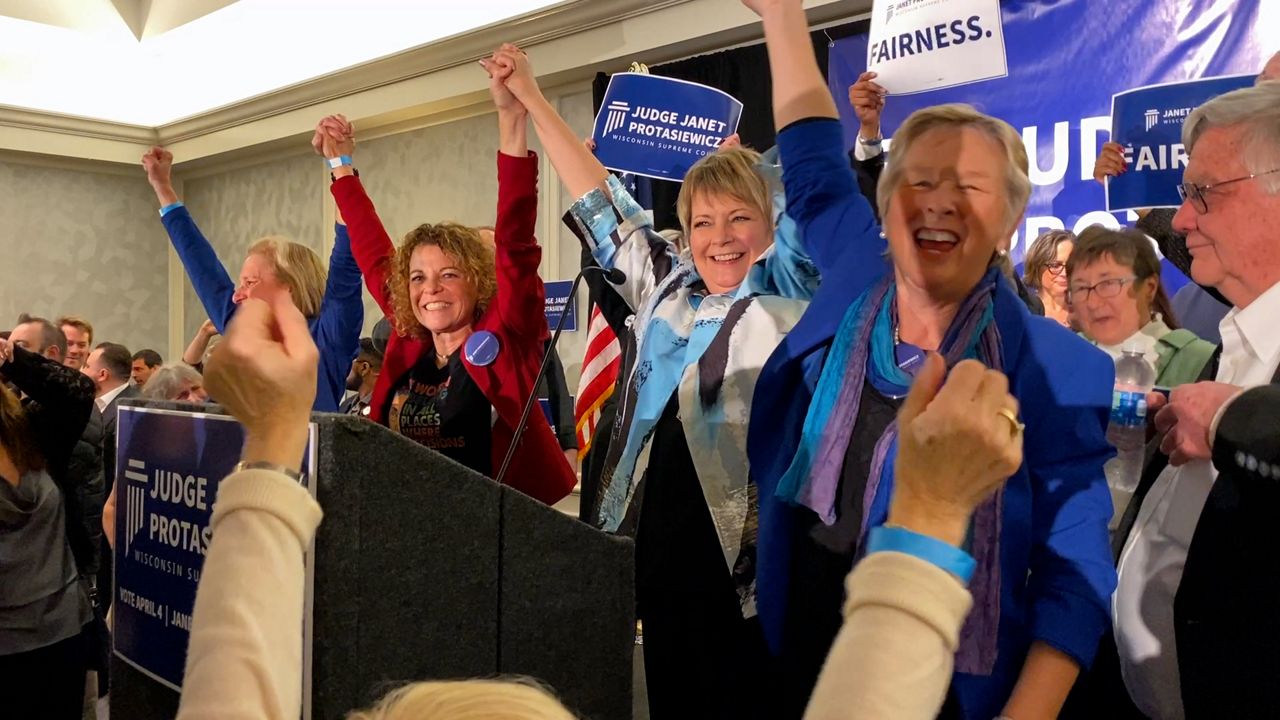WAUKESHA, Wis. — Alongside family, friends and colleagues, Waukesha Co. Circuit Court Judge Jennifer Dorow made it official Wednesday: She will run to be the next justice on the Wisconsin Supreme Court.
Dorow has become somewhat of a household name in recent weeks, after she presided over the Darrell Brooks Jr. trial.
Brooks is the man convicted of killing six people during the Waukesha Christmas Parade last year.
The high-profile case brought lots of media attention, which could work to Dorow's advantage as she enters the race somewhat later than normal. A primary election is approaching in February.
“After many discussions, and a lot of prayer, I have reached the conclusion that now is the right time for me and my family to pursue what I hope will be the next chapter of my judicial career,” Dorow said during her announcement.
Dorow joined three other candidates vying for the position.
“I am a judicial conservative who believes it is the job of a judge to apply the law as it is written, to the facts of a case, and not try and bend the Constitution and statutes to what I would like them to say,” Dorow explained.
Fellow conservative Justice Dan Kelly is running; he was appointed to the high court by former Gov. Scott Walker in 2016 to fill a vacancy. When he ran in the following election in 202, he lost his bid to stay on the bench in 2020. Now he's running for his seat back.
A pair of liberal-learning circuit court judges will also be on the ballot in February — Everett Mitchell of Dane County and Janet Protasiewicz of Milwaukee County.
The two candidates who advance from the February primary will face off in the April general election; in August, the winner will fill the seat of retiring conservative Justice Patience Roggensack.
While the race for state Supreme Court is technically non-partisan, the spring election will determine the ideological balance of the court.
Right now, conservatives hold a 4-3 majority. However, liberals see the election as a big opportunity to flip control ahead of the 2024 presidential election cycle.
The future of abortion rights, how legislative districts and political boundaries are drawn, and union recognition at UW Health could all be issues decided by the court in the near future.
There are also plenty of past rulings that could resurface, including ones that were decided by narrow 4-3 conservative majorities that could possibly be reversed by a 4-3 liberal majority next year.
“For all the cabinet nominations and other boards that, right now, are still filled with people that refused to step down from the Scott Walker years, the state Supreme Court said basically that is okay. That was a 4-3 decision, so that one could be reversed,” University of Wisconsin-Madison political science professor David Canon explained. “It would say that if you are a Scott Walker appointee still serving on one of those boards, you need to step down.”
Such a ruling, hypothetically, would prove crucial, especially as Gov. Tony Evers gets ready for his second term and considers his cabinet going forward.

With control of the court up for grabs, the race is also anticipated to draw more attention than the typical election cycle, according to Canon.
“It will be different than two of the last three state Supreme Court races we have had in that it will be out of sync with the presidential primaries,” Canon said. “Both in 2016 with Rebecca Bradley, and 2020 with Jill Karofsky winning those two races, you had the presidential primaries at the same time. Pretty clearly in 2020 that helped Karofsky, the liberal, because you didn't have a contested Republican primary at that point. It was just the Democratic primary that was being contested, and so I think that really helped bring out more Democratic voters in 2020.”
A primary election will be held on Feb. 21 to narrow the field of candidates ahead of the April 4 election.








)
